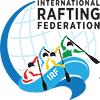 The International Rafting Federation is delighted to announce that we have recently joined 54 other signatory sports organizations to support the Sport for Nature Framework. The Framework was developed as a collaborative effort between the following organizations:
The International Rafting Federation is delighted to announce that we have recently joined 54 other signatory sports organizations to support the Sport for Nature Framework. The Framework was developed as a collaborative effort between the following organizations:
- International Union for Conservation of Nature (IUCN),
- the International Olympic Committee (IOC),
- the United Nations Environment Programme (UNEP),
- the Secretariat of the Convention on Biological Diversity (CBD), and
- the Sails of Change Foundation.
The Framework strives to build on and complement existing initiatives and efforts, including the UN Sports for Climate Action Framework. It aims to bring together the sports and nature conservation communities at all levels and in all regions of the world, from local clubs to global sport organizations.
Signatories pledge to adhere to four key Framework principles to protect the environment, while contributing to national and global biodiversity goals. As a signatory our organization;
- is committed to protecting and avoiding damage to natural habitats and species, including respecting protected areas.
- takes positive action to restore and regenerate nature in and around the indoor and outdoor environments where we operate.
- will reduce risks to nature and enable opportunities to conserve and restore nature in our supply chains, linking wherever possible to climate goals.
- will educate and inspire greater awareness and action for nature within our sport and our wider communities and stakeholders.
The IRF was well positioned to join this effort, having already created the IRF Practical Guide to Sustainability (January, 2021, IRF Practical Guide to Sustainability – 202101 )
The Guide identifies practical actions to implement during recreational and competitive rafting events that achieve the four Framework goals described above.
Our latest article about sustainability efforts in Indonesian rafting, included several examples of the integration of these practices. Other examples of practical actions can be found in Bosnia and Herzegovina, the site of the 2022 and 2024 World Championships, including: limiting individual vehicle access to venue(s) and providing shuttle bus access to competitors, support staff, and volunteers, and using water trucks to provide drinking water at race venues instead of single use plastic bottled water. Besides helping the environment, these practices also have the added benefit of saving costs, and making race venues a safer and more pleasant experience for locals and competitors.
And finally, an example of IRF members contributing to these goals is the USA securing team jerseys manufactured from recycled plastic bottles for their 2024 and 2025 competition rafting teams, Talis Crew.
Increasing the pace and scale of implementing sustainability practices is influenced by numerous factors, but fortunately many can be achieved through knowledge sharing and a collective will embraced by national racing organizations, the international rafting industry, and competitors.
Look for more information coming soon on how to provide examples of sustainability guidance documents and measurable outcomes from implementing sustainable practices at IRF rafting events and workshops within your country. This information will be used to share information among members of the IRF, and create an annual report for the next IUCN Convention on Biological Diversity.
Joseph Willis Jones, President of the International Rafting Federation (IRF): “The IRF is committed to nurturing positive environmental, social, and economic impact for current and future generations within all aspects of the activity of rafting. We are excited about joining the Framework and working with the other signatories on nature positive actions.” (IUCN News, December, 2023)









